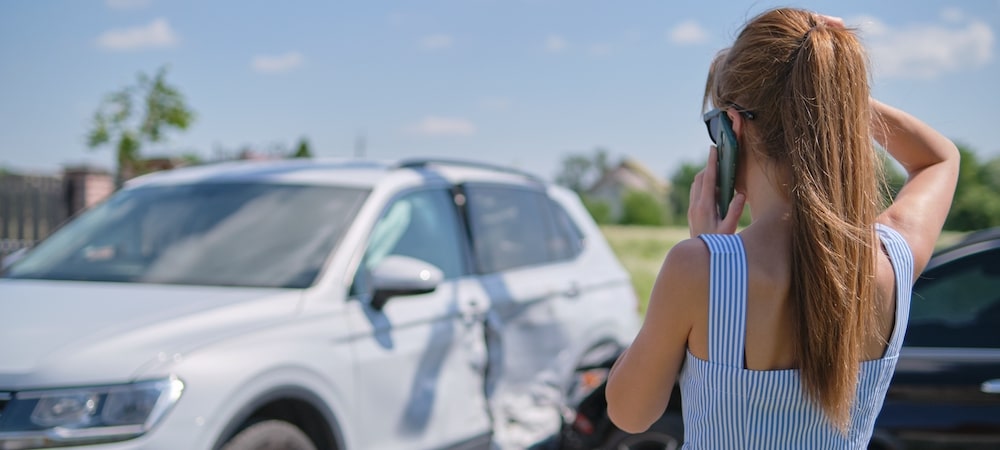When an individual is involved in a car accident while performing duties for their employer, the question of liability and compensation becomes a complex issue. Determining who is responsible for damages and injuries amidst these circumstances hinges on a variety of factors such as the nature of the employment, the specifics of the task being performed, and the employment status of the individual. Employees injured on the job may be entitled to workers’ compensation benefits, which are designed to cover medical expenses and a portion of lost wages without the need to prove employer negligence.
Additionally, in some cases, an employer might carry vicarious liability for accidents that occur during work hours while an employee is engaged in work-related activities. This legal principle can make the employer responsible for the actions taken by employees within the scope of their employment, including driving personal vehicles for work tasks. Understanding the nuances of liability in such situations often requires navigating through specific state laws and assessing the details of the accident.
While workers’ compensation insurance typically acts as a safety net for employees injured on the job, it does not preclude an injured employee from seeking damages from third parties when applicable. When a third party’s negligence is a contributing factor to the accident, the injured worker may have the right to pursue a separate personal injury claim against the third party, in addition to receiving workers’ compensation benefits. Such cases may involve complex litigation and require the expertise of a car accident lawyer who is well-versed in car accidents and workplace injuries, like those from 844 See Mike.

Understanding Workers Compensation in Car Accidents
When an individual is involved in a car accident while performing their job duties, navigating the complexities of workers’ compensation can be crucial. It determines the coverage for medical expenses and lost wages due to injuries sustained during the course of employment.
Eligibility for Workers Compensation Claim
To be eligible for a workers compensation claim upon a car accident, an individual must have been engaged in work-related activities during the incident. This eligibility often excludes commuting to and from work, known as the “comings and goings” rule, but it includes accidents that occur during work hours and in the scope of employment duties. In instances where employees are required to drive as part of their occupation or are on a special errand for their employer, workers’ compensation coverage may apply.
In Scope of Employment: The employee must be acting within the course of their job.
During Work Hours: The accident must have happened during the hours the employee was on duty.
Workers Compensation Benefits
Once an employee’s eligibility is established, the workers compensation benefits may include:
Medical Expenses: Coverage for medical treatment resulting from the car accident
Medical Coverage: Full or partial reimbursement
Lost Wages: Compensation for wages lost while recovering
Rehabilitation Costs: In some cases, the benefits may extend to rehabilitation services
An employer’s insurance company may have a lien on compensation received from third-party settlements. This means the insurance provider may be entitled to repayment from any settlement the employee receives from another party responsible for the accident. It is important to consult with a legal professional to fully understand the ramifications of such liens and navigate the claims process effectively.
Determining Liability When On the Clock
When an employee is involved in a car accident while performing duties related to work, the process of determining liability typically involves considering the nature of the vehicle use, whether it’s a company or personal vehicle, and the employment status of the individual involved.
Employer Liability for Company Vehicles
Employers are generally held responsible for accidents that occur when an employee is using a company vehicle for work-related purposes. This liability stems from the principle that the employer is benefiting from the activities of the employees.
In Illinois, for instance, if an employee is involved in an accident while carrying out their job duties in a company vehicle, the employer’s insurance may cover the damages, as long as the use of the vehicle is within the scope of employment.
Vicarious Liability in Personal Vehicle Use
The concept of vicarious liability arises when an employee is using a personal vehicle for work-related tasks. Although typically personal vehicle use does not result in employer liability, there are scenarios where an employer can be held liable for accidents. An example is when an employee is running an errand for their employer; the employer might then be responsible for any accidents occurring during that errand.
Accidents Involving Independent Contractors
Accidents involving independent contractors differ from those with traditional employees. Generally, employers are not liable for accidents caused by independent contractors. However, exceptions exist, particularly if the contractor is performing tasks within the control of the employer, which can sometimes lead employers in Illinois to bear responsibility.
Legal Assistance and Consultation Process
When involved in a car accident on the job, navigating the complexities of insurance claims and legal rights is daunting.
The Role of Insurance Companies
In the event of a car accident while on the clock, the employer’s insurance company often plays a critical role. It may provide coverage for medical expenses and lost wages. The extent of coverage can depend on the company’s policy and whether the accident falls within the scope of work-related activities. To understand specific rights and available benefits, individuals should promptly report the accident to both their employer and the insurance provider.
Seeking Legal Advice from Specialists
Navigating legal matters post-accident may require the expertise of a personal injury specialist from 844 See Mike. A Chicago personal injury lawyer can offer in-depth knowledge on matters ranging from workers’ compensation to potential third-party claims. Experienced attorneys who specialize in vehicle accidents on the clock can be instrumental in ensuring one receives all entitled benefits and compensation.
What to Expect in a Free Consultation
We offer a free consultation to evaluate an accident victim’s case. During this consultation, you should be prepared to share details of the accident, any communication with insurance companies, and the impact of injuries on personal and work life. Your attorney will assess the case, inform you of your rights, and design a strategy suited to the specific situation. This initial meeting is also an opportunity for individuals to judge compatibility with the attorney before any commitments are made.
Navigating Car Accident Damages and Claims
When involved in a car accident while on the job, it is essential to know how to pursue a compensation claim and understand the types of damages that may apply. Whether the accident occurred during business trips or regular duties, different rules may govern the coverage for any losses sustained.
Filing a Compensation Claim
In the event that one is involved in a car accident while performing work-related duties, they must promptly notify their employer and file a workers’ compensation claim. This is generally the first step, as workers’ compensation can cover medical expenses and lost wages. Documentation is key; one should gather all relevant information regarding the accident, including a police report and any witness statements.
- Notify employer immediately
- Gather all accident-related documentation
- File a workers’ compensation claim
Understanding Car Accident Damages
Damages from car accidents can be extensive and vary from property damage to personal injury. When assessing car accident damages, it’s important to differentiate between compensatory damages, designed to make the victim “whole” again, and punitive damages, intended to punish the wrongdoer.
Compensatory Damages: Medical bills, repair costs, lost wages
Punitive Damages: Rarely awarded, but applicable in cases of gross negligence
Business Trips and Car Accident Coverage
For accidents that occur on business trips, coverage may extend beyond workers’ compensation. One’s personal auto insurance or a company-provided insurance policy could offer additional avenues for recovery. It is critical to review the terms of the coverage and determine if the business trip was within the scope of employment as it can affect the eligibility for different types of compensation.
Workers’ Compensation: Applies to accidents on the job
Personal/Company Auto Insurance: May provide additional coverage
Scope of Employment: Influences the applicability of coverage
Understanding these aspects is integral to effectively navigate through the aftermath of a car accident while on the clock.
If you have any additional questions or would like to bring on the services of a Naperville injury lawyer to ensure you get fair compensation, reach out to 844 See Mike.




